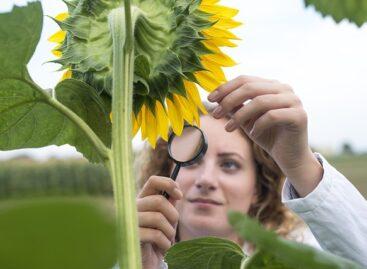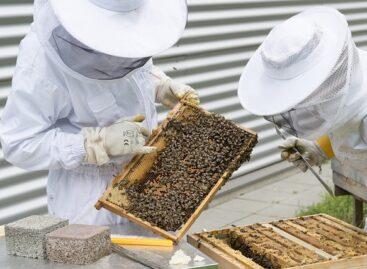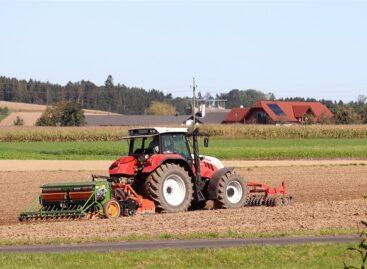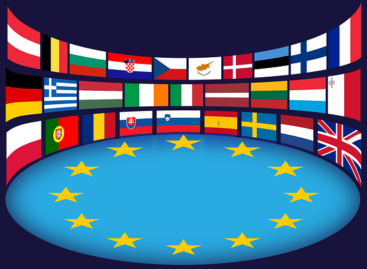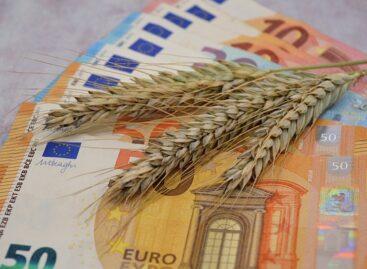Ukraine’s accession to the EU would endanger the livelihood of European farmers
Ukraine’s possible accession to the European Union would threaten the livelihood of European farmers, as European farmers cannot compete with hundreds of thousands of hectares of Ukrainian farms owned by Western big capital, which produce under much lighter rules, the Minister of Agriculture said in Brussels on Monday.
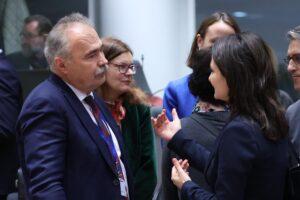
(Photo: AM)
István Nagy told Hungarian journalists after the meeting of the ministers of agriculture of the member countries: the European Commission has not prepared an analysis of the expected effects of possible Ukrainian accession to the EU on agriculture, but according to estimates, Ukrainian farms would receive almost 30 percent of the common agricultural policy (CAP) subsidies. The consequence of this is that subsidies from other member states, including Hungarian farmers, would be significantly reduced, he said. The farmers of the bordering Member States are already “feeling the effects of Ukraine’s possible EU accession on the agriculture of the European Union (EU) firsthand”, since due to the dismantling of trade barriers, from an agricultural point of view, Ukraine has been part of the internal market for practically one and a half years, he said. – The bordering member states could not count on the European Commission to deal with the market disruptions caused by the increased Ukrainian imports, and it shows complete incompetence that the EU import ban was lifted during the harvest. In response to this, the Brussels body is threatening Hungary, Poland and Slovakia with infringement proceedings due to the measures introduced under national competence. Hungary has already received the letter about this – said István Nagy.
The Minister of Agriculture informed that there was no agreement between the member states on the EU Commission’s proposal for new gene therapy techniques
This supports Hungary’s position that more time is needed to develop a suitable solution, and that nothing can jeopardize food security, he stated. “From the Hungarian side, we consider it a question of sovereignty that we ourselves can decide with which technology we want to grow and consume plants and food produced in our own country,” said István Nagy, adding that consumers have the right to know what they are buying and consuming. Regarding the EU Commission’s proposal to reduce the use of pesticides, the Minister of Agriculture said: the rejection of the proposal qualifies the European Commission’s document. The proposed introduction of mandatory reduction targets based on the lawnmower principle, which completely disregards the results achieved so far, and the ban on other sensitive areas would seriously endanger the EU’s food security, he stated. István Nagy stated: the proposal is irresponsible and unacceptable. Hungary does not consider it necessary to create a new rule in an area where there is no longer any need for it, since the set goals can be achieved with the currently effective legal framework and practice, he said. “If they want to decide what a farmer has to do at the table of law, only problems and troubles arise from that. They entrust farming to European farmers,” said the head of the ministry.
The honey mixes were also served
Finally, the Minister of Agriculture announced: regarding the origin of honey mixtures, the EU agriculture ministers agreed that in the future it will be mandatory to indicate the place of origin and the exact percentage of honey in the honey bottles. István Nagy said that, thanks to the stricter regulations, it will be clear to customers which country the honey comes from and in what proportion it is in the bottles. This makes it easier for customers to find quality Hungarian honeys, and by purchasing them, they support not only Hungarian beekeepers, but also the preservation of biological diversity. The mandatory, accurate percentage of origin labeling can effectively help combat honey of uncertain origin and dubious quality from outside the EU, he explained. István Nagy expressed his hope that with the adoption of the regulation, the market situation of Hungarian beekeepers will also improve, since – as he emphasized – Hungarian honey is of high quality and does not require any added additives in order for it to exert its natural effect.
MTI
Related news
There are many old people and few women in domestic agriculture
A third of agricultural managers are already 65 years old…
Read more >Beekeeping is one of the most important branches of agriculture
Honey can be imported, but pollination cannot, which is why…
Read more >More than 60 percent of the planned sowing work has already been completed
According to operational reports assessing the state of agricultural work,…
Read more >Related news
Euro zone inflation was 2.4 percent in April as well after March
In line with analysts’ expectations, annual inflation in the euro…
Read more >Gergely Suppan: the recession is clearly over in Hungary
The recession is clearly over in Hungary, from now on…
Read more >K&H: the inflation anomaly is clearly visible, but customers perceive it differently
Although inflation has slowed down a lot, according to the…
Read more >

